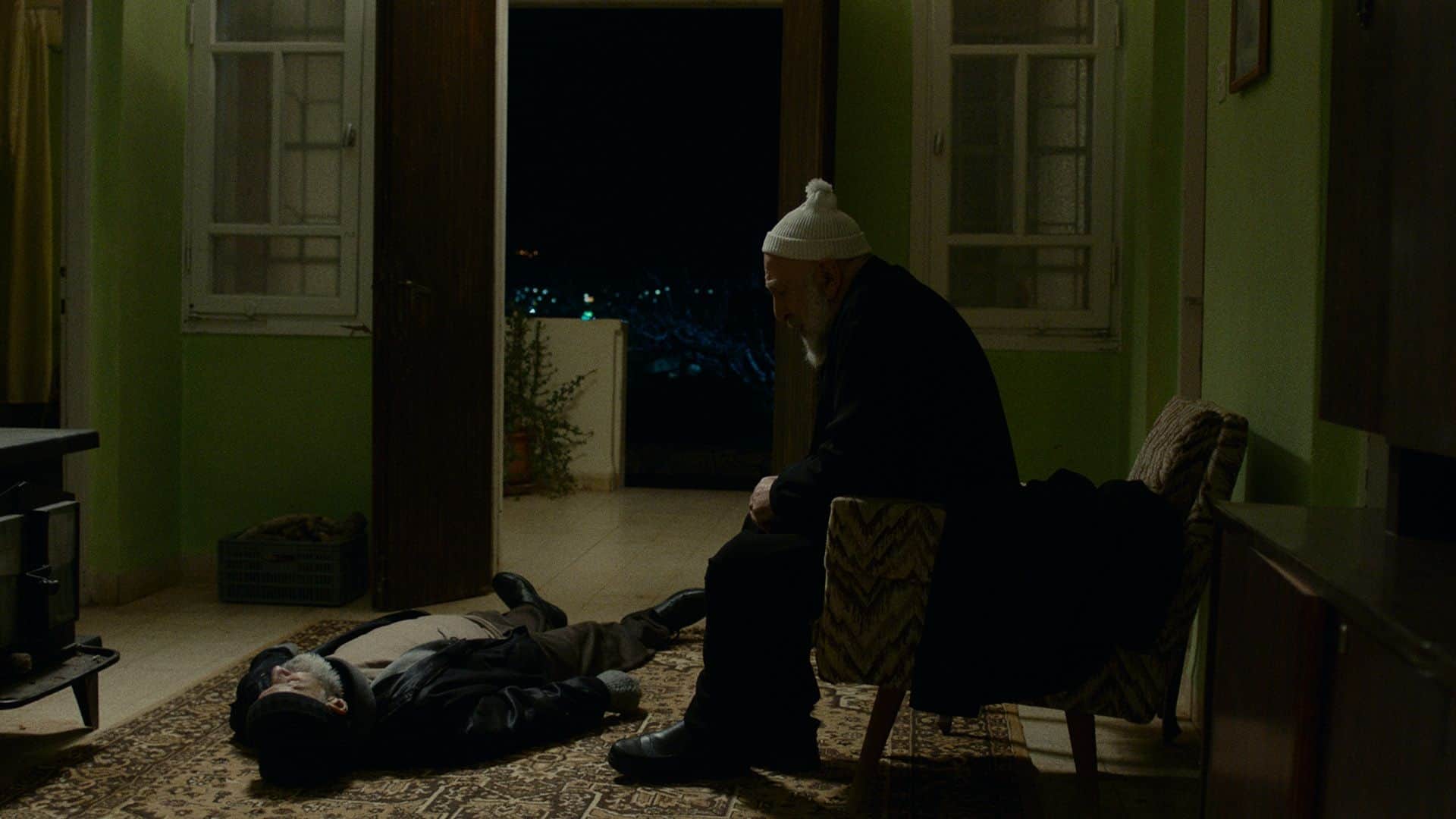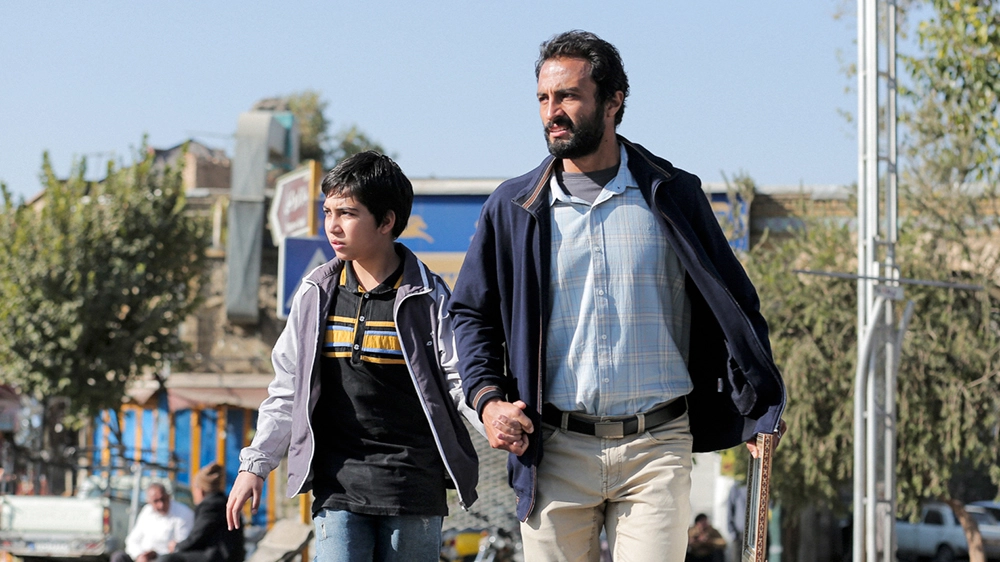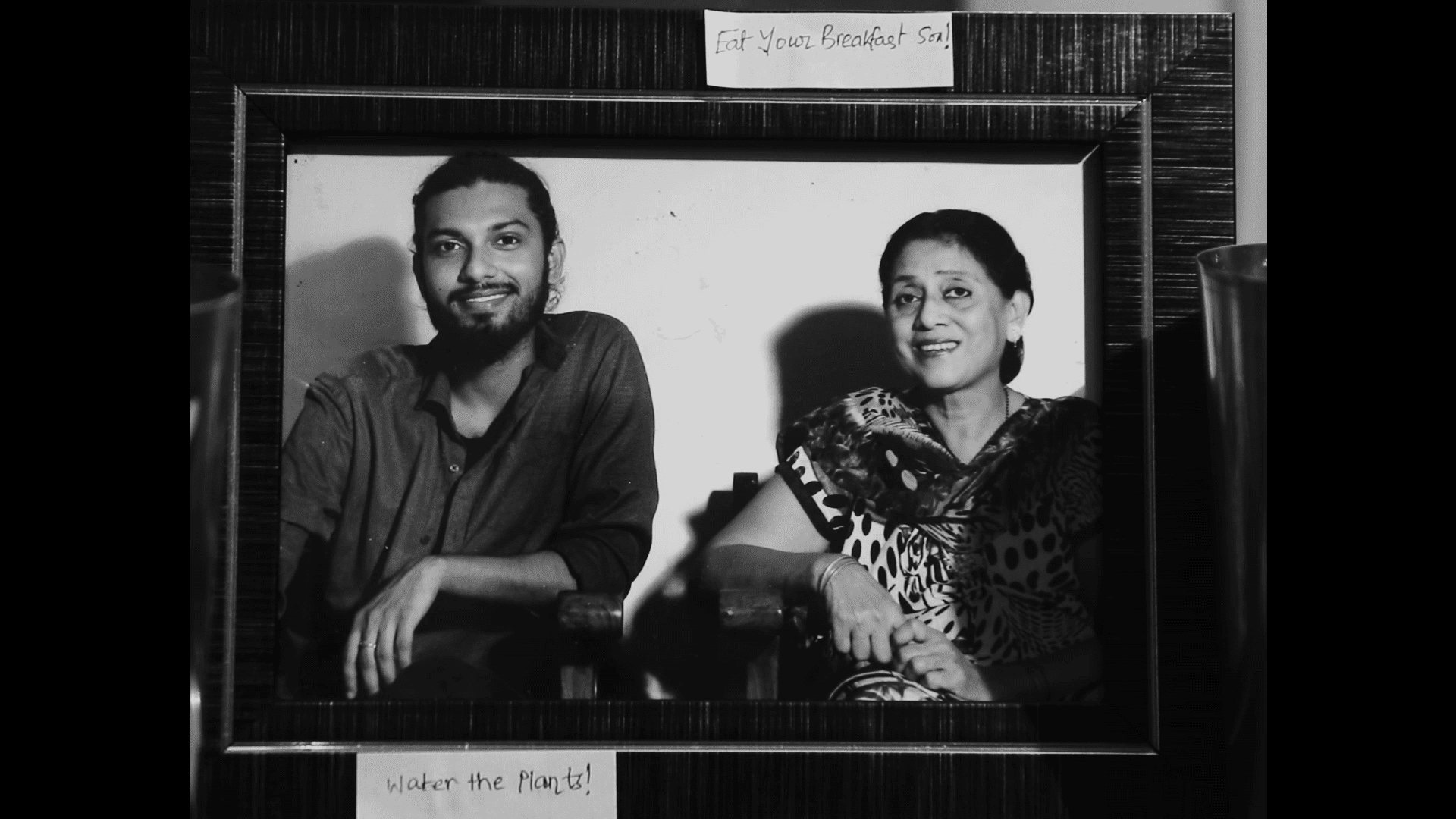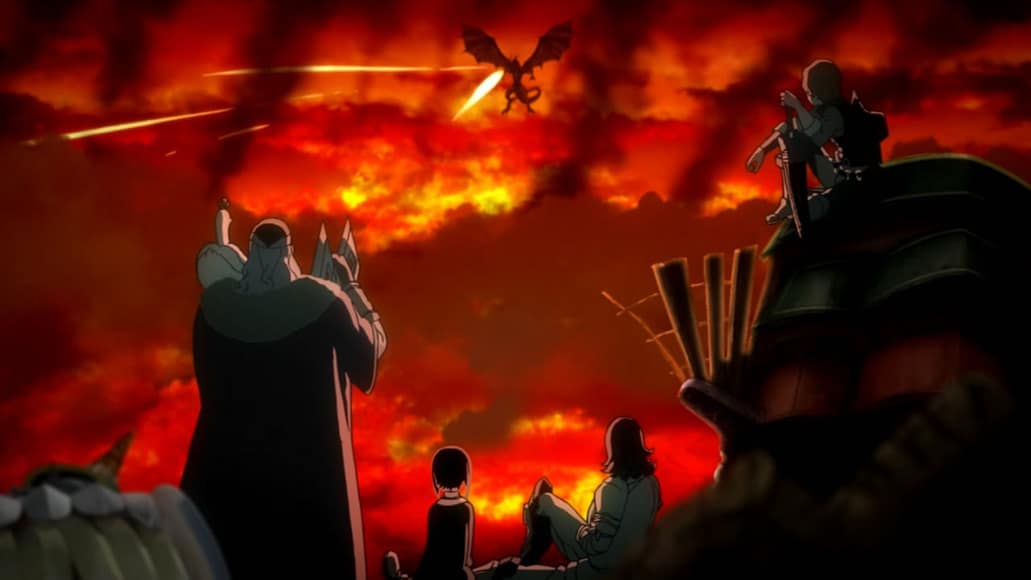Chang Hyun-sang's latest movie “Zombie Crush: Heyri” is the K-zombie offering to come out of South Korea this year. The indie comedy premiered at the 24th Bucheon International Fantastic Film Festival, where it won three awards.
One Sunday, the beautiful Heyri Art Valley gets attacked by zombies. Initially somewhat glanced over as maybe just another expression of the artsy people in the people from Paju city, the number of the undead starts growing slowly but steadily. Three female friends, the pastor's daughter Jinseon (Gong Min-jung), the witch-themed café owner Gayeon (Sojin from Girl's Day), and the dorky and bashful Hyeona (Lee Min-ji), aided by the fledgling YouTube stuntman and ex-Seoul Action School student Komuri (Park Min-gu) and the barista Junsik (Kim Sun-gi) try to survive the slow but steady living dead invasion.
Though having a somewhat cliched premise, “Zombie Crush: Heyri” is quite different from most similar Korean movies to have come out in the past few years, in that it is non-political in tone. Whereas most other zombie actions like “#Alive” or “Train to Busan” deal with rather obvious sociopolitical themes, Chang's debut is made mostly as a fun vehicle and the commentary, where there is some, is aimed not at the society or the political regime as such, but rather at the zombie genre.

The commentary on the living dead genre is most obvious in the movie's use of tropes, especially that of the faulty vehicle. Whereas in many other horror and zombie flicks, the characters cannot escape from the coming hordes because of a broken car or problems with the starter, in Heyri they cannot do it, simply because the rich Jinseon's electric car hasn't been properly charged. So, instead of not turning on at all, the modern artsy vehicle starts and stops, giving the three friends, and possibly some of the viewers, a false sense of hope. It's as if the director is saying to his characters “Ha, you think you'll get off that easily?” It's a pretty fresh attitude at a time when many other movies from the genre seem to take themselves way too seriously. A similar thing can be seen with the place where the invasion takes place. While most other works are set in generic and non-specific locations, the run-of-the-mill village of “Zombie on Sale” comes to mind, as one of the means to make the fear of the walking dead feel closer to the viewers, “Zombie Crush: Heyri” does the exact opposite not only by being very specific as to where the clash happens but also by making sure it is a type of an artificial and somewhat unique for Korea place that very few people can relate to.
The theme of social media's role and especially of YouTube is quite prominent here. Many of the funniest jokes from the first act derive from it, especially from the farfetched and ridiculous expectations for internet notoriety that some of the characters, especially Komuri, have. As if simply having content on the platform equals fame, something that more and more people seem to expect. On the other hand, the Internet is shown also as a place for knowledge, both strange and highly specific, but also timely and important, especially in weird situations as zombie invasion, as seen through the timid and somewhat socially awkward Hyeona. The prominent use of the internet also helps the movie gain a somewhat meta characteristic with many jokes poking fun at the formulaic structure of the genre and its overflow of the Korean cinematic world in the past few years. In that, “Zombie Crush” reminds a bit of “The Dead Don't Die.”
“Zombie Crush: Heyri” works rather well as an ensemble action-comedy. All of the five major charters in this indie flick are quite different from one another in a funny and one-dimensional, yet complementary way. Jinseon is somewhat level-headed, though a bit spoilt, Gayeon is whimsical and a bit out-there, whereas Hyeona is timid, yet knowledgeable in dorky way netizen. The three female characters are rounded up by the hilariously heroic YouTuber Komuri and the dorky barista and Gayeon aficionado Sungi. All five of the actors do a good job at portraying the characters with Sojin's Gayeon and Lee Min-ji's Hyeona being the obvious standouts. The chemistry between them and their characters, which are somewhat of a polar opposites, the first is absent-minded and free, whereas Hyeona is very reserved and unsure of herself, makes for some very entertaining moments. Of course, there isn't much, if any, character development here that requires great acting chops, nevertheless, there are no annoying or painfully bad performances here.
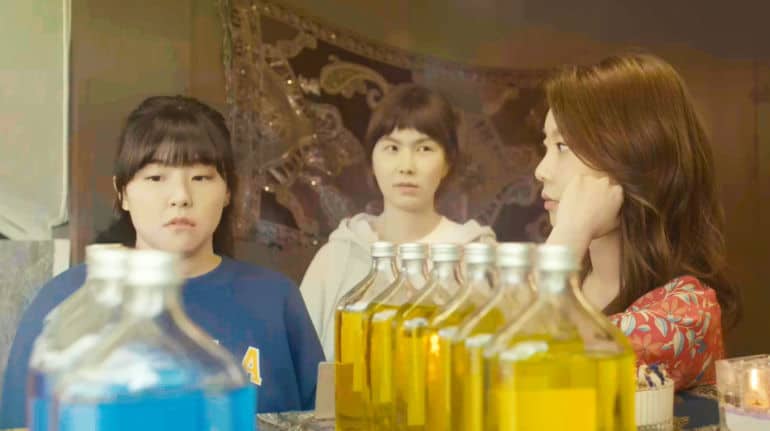
The only weak point of this otherwise very pleasant and funny indie flick is the subpar sound design. Criticizing indie movies for their lackluster quality is something we are not fans of, after all, these do not have the huge budgets or specialists of their more expensive brethren. Still, there is a very clear line between lack of technology and simply doing a sloppy job. Sadly, it is the latter here. The sound quality and microphone placement in different scenes is hugely different, sometimes the voices are loud and clear, others – distant and hushed. Moreover, even within the same cuts of the same scene, the sound quality changes dramatically. Some lines may be adequately recorded, while the ones after them – loud, distorted, and very difficult to understand. The last problem is very noticeable in the scenes when the three main characters shout or scream. All of their screams are so loud that the voices come out as nothing more than jumbled mess. The problem of the sound recording continues with the music and atmospheric sound within the film which are more or less non-existent. This results in a very flat and boring auditory experience, and even worse – it harms the atmosphere of the flick and the tone of many scenes, making funny ones seem gravely serious and vice-versa.
Despite its subpar sound design and somewhat formulaic structure, “Zombie Crush: Heyri” is a zombie flick that's full of laughs and scenes that both pay respects to and subvert this somewhat overpopulated genre.



